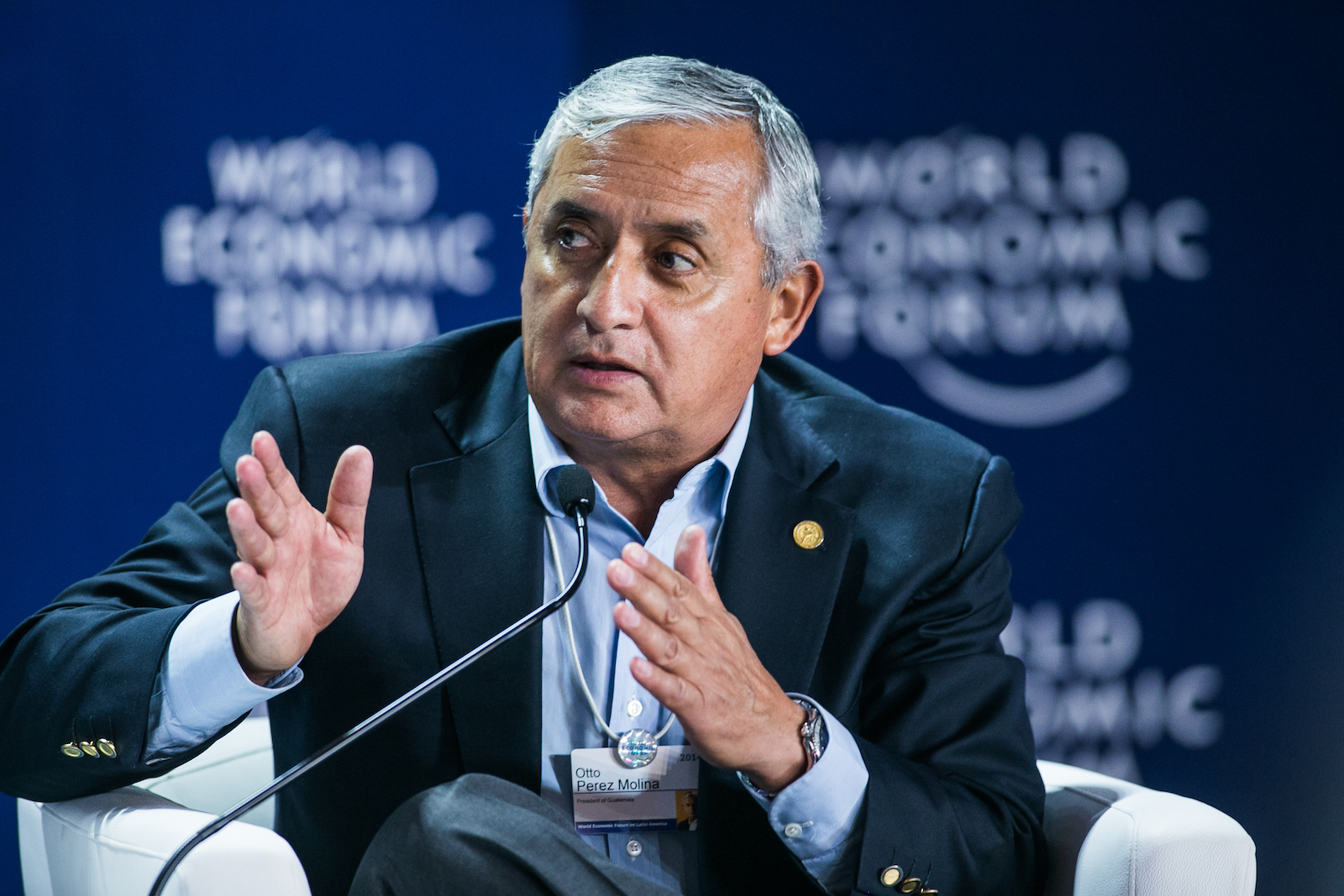
Qualifying U.S. Military Aid to Guatemala
Public security is a growing concern in Guatemala as violent Mexican drug trafficking organizations (DTOs), most notably Los Zetas, make their way down into that country. Indeed, Guatemalans elected Otto Perez Molina to the presidency on January 14, 2011 attracted by his promise to take an “iron fist” approach to organized crime. In part, this “iron fist” approach means relying more on the military for security. With a growing public debt, President Perez Molina is looking to Washington for military aid to support the Guatemalan army. U.S. foreign military aid is currently limited to Guatemala’s Air Force, Navy and Army Corp of Engineers.
However, given the country’s history of human rights abuse, impunity, and public insecurity there are clear costs to this approach that may outweigh the benefits unless certain conditions are met—something Washington should more carefully consider. When analyzing public security in Guatemala, Mexico provides a cautionary tale.
Since Mexican President Felipe Calderon’s war on drugs began in 2006, the murder rate and the number of human rights abuses in that country have skyrocketed. Many in the ranks of Los Zetas, the most violent of the DTOs, are former Mexican and to a lesser extent Guatemalan elite military personnel. This does not bode well for Guatemala with a weaker and more corrupt state and a more impoverished society than that of Mexico.
The military trains to kill while the police are trained to protect. Part of the problem though is that the police in Guatemala are very corrupt and are not able to provide adequate security to the population. For every police officer in the country, there are five private security guards. The decentralization of security to private actors, many of whom do not operate in the formal economy, undermines both democracy and the rule of law.
Clearly Guatemala needs international assistance to reform its police, improve the judiciary and root out corruption. These reforms however, take time. Meanwhile, how large of a role should the military play? When making this determination, it is important to note that the murder rate in Guatemala dropped modestly over the last couple of years—a fact that is clearly understated in sensationalist headlines both inside and outside of Guatemala.
Another important factor to consider is the type of military training (and equipment) the Guatemalan military should receive from the United States. According to a recent U.S. Government Accountability Office report, the U.S. government’s International Military Education and Training Program (IMET) often marginalizes human rights training.
This is especially troubling given that there are no evaluation mechanisms in place to assess the impact of the program in any country, much less one long rife with human rights abuses. Finally, it is important to understand how President Perez Molina might use the military and military assistance in conjunction with other peace building tools at his disposal. While he helped negotiate Guatemala’s Peace Accords in 1996 that ended a 36-year-old civil war and reduced the size of the army, there is evidence that he had a hand in some of the worst human rights abuses during that war.
Despite a muddied past, there are promising signs that he will take human rights, rule of law and social programs seriously. He is allowing Attorney General Claudia Paz y Paz to finish her four-year term despite her record of pursuing the human rights cases against many of his former military colleagues. He has shown his support for the UN-sponsored anti-impunity commission, CICIG, and pledged to continue important social programs from the previous administration.
However, how much this is due to U.S. pressure is unclear. Given the current state of affairs in Guatemala, the U.S. Congress will consider a request to fund the Guatemalan army “if the army has a narrowly defined mission focused on border security and external threats, is implementing a reform strategy that has broad support within Guatemalan society, is respecting human rights, is cooperating with civilian investigations and prosecutions of cases involving current and retired officers and with the CICIG, and is publicly disclosing all military archives pertaining to the internal armed conflict.”
Given the lessons of Mexico and the current environment in Guatemala such conditions support what could be an effective approach to public security in Guatemala. However, two of the conditions may be contradicting each other—an army with a narrowly defined mission and broad public support. In Guatemala, the public appears to support an expanded role for the army. Given the political reality on the ground Congress may be wise to loosen its current qualifications a little when it comes to a final determination. At the same time, the U.S. Congress should add an additional qualification and clarify another to encourage change. For the additional qualification, the U.S. Military must demonstrate visible efforts to improve IMET human rights training and program evaluation, something the U.S. Departments of Defense and State have indicated are worthy objectives.
Secondly, the aid should be qualified on President Perez Molina’s demonstrated dedication to programs that address both the symptoms and root causes of violence. This may be part of what Congress had in mind when it mentioned “a reform strategy” with public support, but if so, it needs to be laid out in more detail. Obviously, continued dedication to police and judicial reform are a must. This much has already been established. However, if a public security strategy does not address the root causes of violence, such as the unequal distribution of wealth, benefits and opportunities, it will fail. In this regard, one legitimate concern, although not the only one, is that the “iron fist” approach to violence traditionally includes legal provisions that focus on zero tolerance and punishment of criminals who break the law while failing to address the root causes of their crime.
A more effective approach would put greater emphasis on preventing youth crime and programs that give criminals more opportunities to reintegrate themselves as productive members of society. This is something that can and must be done. Ultimately, while feasible qualifications encourage change, U.S. funding should never be given unless it is reasonable to believe that the funding supports the stated goal. For Guatemala, if the above qualifications are met, U.S. funding for the Guatemalan army would support the end goal of increased public security while protecting human rights.

